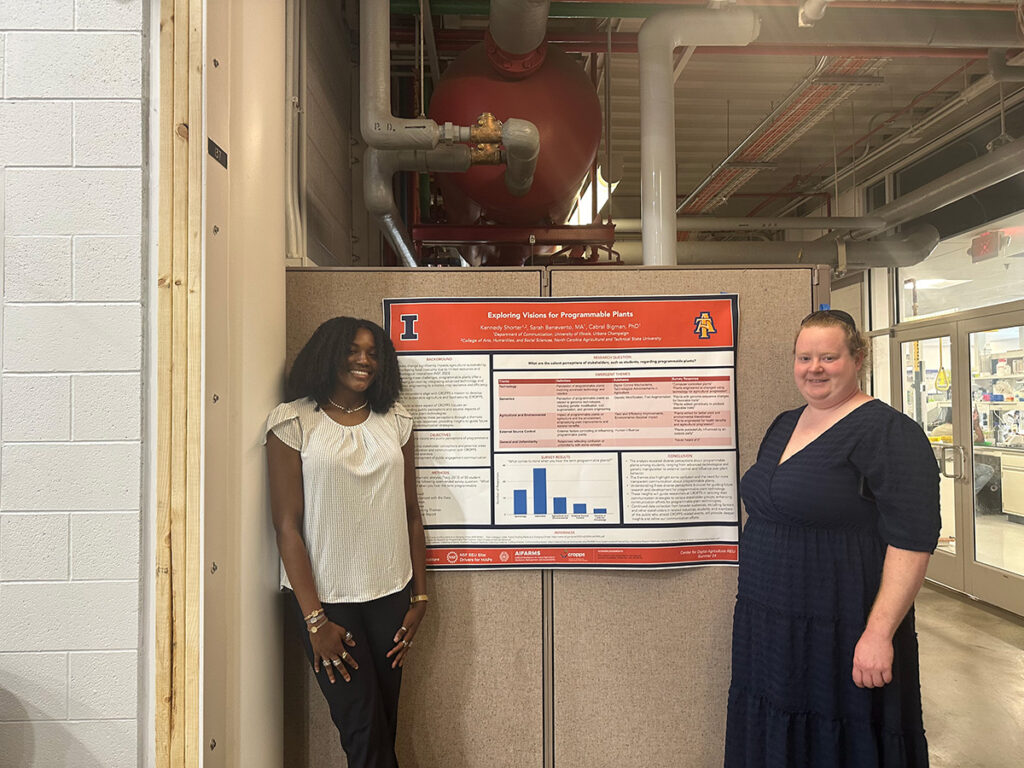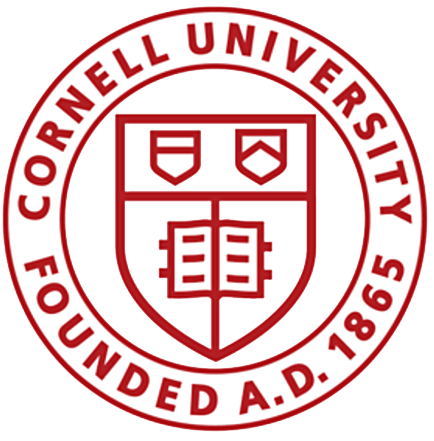Explore the world of research as we delve into the experiences of summer scholars with the Center for Research on Programmable Plant Systems (CROPPS). Join us in conversations with budding researchers as they walk us through their time in the 2024 Research Experiences for Undergraduates (REU) program for CROPPS hosted by the Boyce Thompson Institute (BTI), Cornell University, and the University of Illinois Urbana-Champaign.
Exploring the World of Research
An Inside Look with Kennedy Shorter from the CROPPS REU Program

Kennedy Shorter
- University: North Carolina Agricultural and Technical State University
- Major: Political Science
- Graduation year: 2026
- Hometown: Houston, Texas
- Project: Exploring Visions for Programmable Plants
- Partner: University of Illinois Urbana-Champaign, through the Center for Digital Agriculture REU program
- Mentors: Cabral Bigman and Sarah Benevento
The CROPPS program combines researchers from plant sciences, engineering, computer science, and the social sciences into an integrated program to plant biological research and translation. Tell us about your REU project with CROPPS faculty and fellow students
“I worked on a project that explores the social and ethical implications of programmable plants. My role involved conducting in-depth research on how these innovations could impact society, especially regarding environmental sustainability, food security, and potential ethical challenges. I was responsible for analyzing data, reviewing relevant literature, and integrating findings that would contribute to developing guidelines and policies that could govern the use of programmable plants in the future. This work advanced my understanding of the intersection between technology and society and aligns with my long-term goal of advocating for equitable and ethical practices within the legal and political spheres.
I was drawn to this project because it perfectly aligned with my interests in environmental law and advocacy. The potential of programmable plants to address significant issues like environmental sustainability and food security is very intriguing, and I’m particularly interested in how these innovations could benefit marginalized communities. As someone who aspires to become an environmental attorney, the research allowed me to explore new technologies’ ethical and societal implications. I’m passionate about advocating for those who could gain the most from these advancements, ensuring that the environment is protected for future generations.”
What aspect of programmable plants do you find most interesting?
“What I find most interesting about programmable plants is their potential to combat climate change. My research suggests that these plants could improve soil health or adapt to changing environmental conditions, making them a powerful tool in the fight against global warming. The idea of programming plants not only to survive but to thrive in increasingly harsh climates opens up exciting possibilities for mitigating the effects of climate change.”
CROPPS believes in the power of mentorship for young scientists. Tell us ways mentorship has impacted you as a scientist
“For a young political scientist, mentorship is essential. During my time at Illinois, I greatly valued the insights from Sarah and Cabral. They didn’t just provide guidance—I saw my future self reflected in their methods and practices. They corrected me when I was wrong and reinforced when I was right, which was something I deeply appreciated. My experience with them wasn’t just about learning; they helped me build confidence, broaden my perspective, and encouraged me to pursue my goals with clarity.”
How has this summer experience prepared you for the future?
“This summer experience has been instrumental in preparing me for the future, both in terms of the knowledge I’ve gained and the relationships I’ve built. The CROPPS program gave me a deep understanding of the scientific and ethical dimensions of programmable plants, which will be invaluable as I pursue a career in environmental law. Additionally, meeting Darius Melvin, the CROPPS Assistant Director for Centerwide Engagement and Partnerships, has opened doors to potential opportunities aligned with my career goals. His advocacy and support have been crucial in helping me navigate my path, offering guidance on how I can continue to integrate my passion for science with my aspirations in policy and law. The connections I’ve made and the skills I’ve developed through this program have laid a solid foundation for my future endeavors.”
What has been your favorite part of the REU program?
“My favorite part of the REU program was the Science Slam poster session and the symposium, where I had the chance to see the final findings of my fellow CROPPS students. These events were incredibly inspiring, as they showcased the diverse and innovative research conducted by my peers. Personally, it was rewarding to highlight my own growth throughout the program. Presenting my research alongside my fellow REU students and engaging in discussions about our work was a highlight of my summer.”
Did this summer experience with CROPPS reveal any new insights about yourself?
“Before entering the program, I had always wanted to be a lawyer, even from a young age. My interests spanned various areas, such as civil rights, constitutional law, patent law, and more. However, I’ve always had a passion for the environment and climate change. The REU program was a turning point for me, as it helped me connect these interests and illuminated my desire to pursue environmental law. This experience clarified my career path, showing me how to combine my legal aspirations with my commitment to environmental advocacy.”







